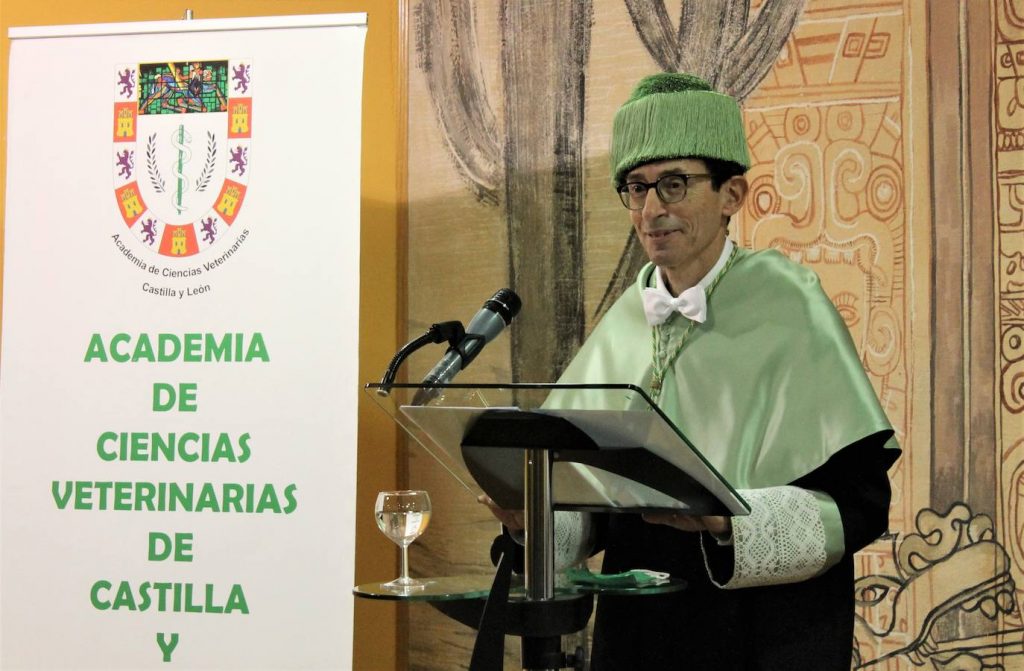Carlos Abascal at the event at ULE.
The ULE professor analyzed the losses caused by mastitis in animal production, selecting immunobiology and microbial balance
On Wednesday afternoon, Félix Gordón Ordás Paraninfo for the El Albéitar building of the University of Leon (ULE) hosted the incorporation of Carlos Gonzalo Abascal, Professor of Animal Production, as the Academic Corresponding to the Academy of Veterinary Sciences of Castilla-Leon (AVETCYL), in a work presented by Academician Vicente González Eguren.
In his letter to join AVETCYL, entitled “Immunobiology of the mammary gland and exposure to mastitis in small ruminants,” Carlos Gonzalo Abascal explained that worldwide, and especially in the European Union countries in the Mediterranean region, “the main use of sheep and goat milk is It is the production of high quality cheeses and also fresh consumption in the case of goat milk.”
financial incentives
In recent years, there has been a significant transformation in the sector, thanks to development policy and financial incentives, the definition of sanitary and hygienic standards for milk and cheeses, and successful genetic selection in favor of a larger individual production of milk.
“This increase in milk production occurred at the expense of animal welfare and some functional characteristics in small ruminants, with an increase in the incidence of breast infections and other animal diseases,” the new academic explained. To these conditions must be added the “necessary reduction in the use of antibiotics in livestock”.
Livestock losses
The scientific community agrees that mastitis is one of the “most prevalent diseases and causes the greatest economic losses to dairy ruminants”. Proceeding from this reality, the ULE Professor conducted a detailed analysis of the state of the matter, reviewed the mammary gland immunity, cellular defenses, methods for diagnosing and monitoring mastitis, as well as production and quality losses. of milk. Other aspects of presentation were bacteriocins, immune regulation, immunotherapy and vaccination, as well as genetic improvement of mastitis resistance.
In conclusion, Carlos Gonzalo Abascal called for the need for “new and innovative approaches to controlling mastitis,” and referred to “immunobiology and microbial homeostasis of the breast as areas of study and research, with a variety of applications and a very promising future,” which will require “our full attention in the years to come.” coming.”

“Social media evangelist. Student. Reader. Troublemaker. Typical introvert.”



:quality(85)/cloudfront-us-east-1.images.arcpublishing.com/infobae/HVWABHYVWQ7AZF7IKKAWQHBXVQ.jpg)
:quality(85)/cloudfront-us-east-1.images.arcpublishing.com/infobae/M5GCXAEFYZCIBESYP7BOG2OEXY.jpg)
:max_bytes(150000):strip_icc()/beyoncecabellonatural-39766d50f8c0409d87c26e8448f3c6a7.jpeg)


More Stories
Valencia Marathon and the City of Arts and Sciences renew their agreement for another four years
Eight applicants tied for first place in Human Medicine at the National University of Piura: the case raises doubts
Eureka, the science school where kids learn and play